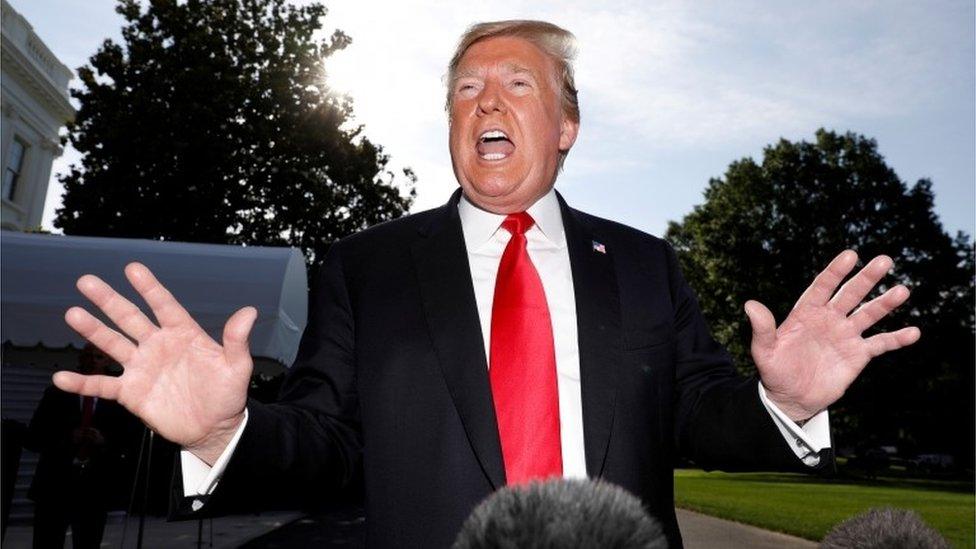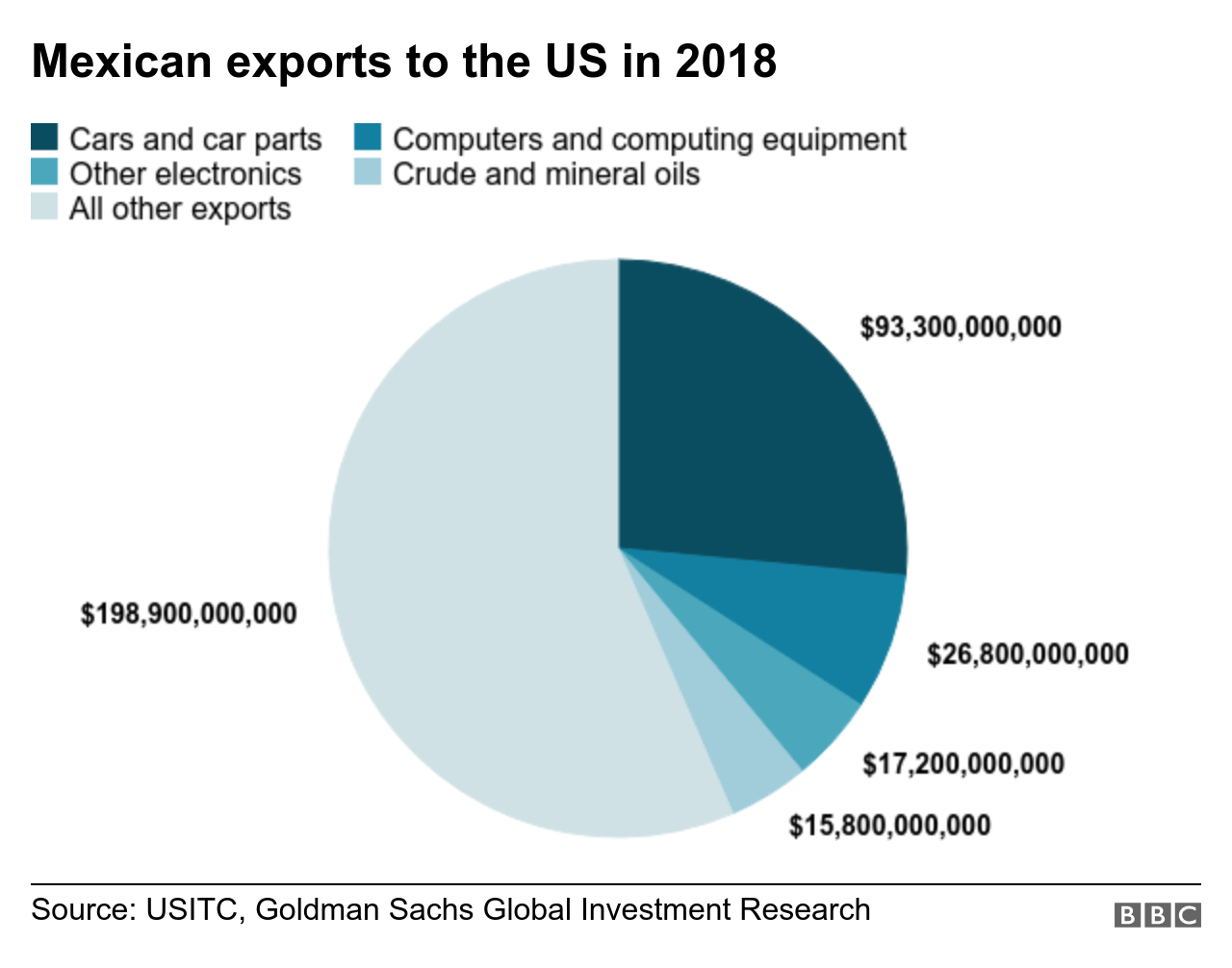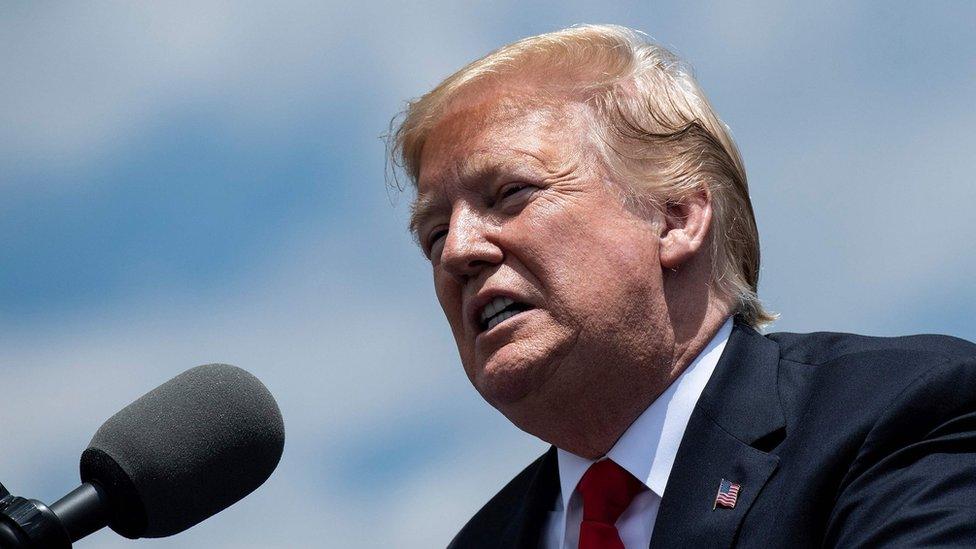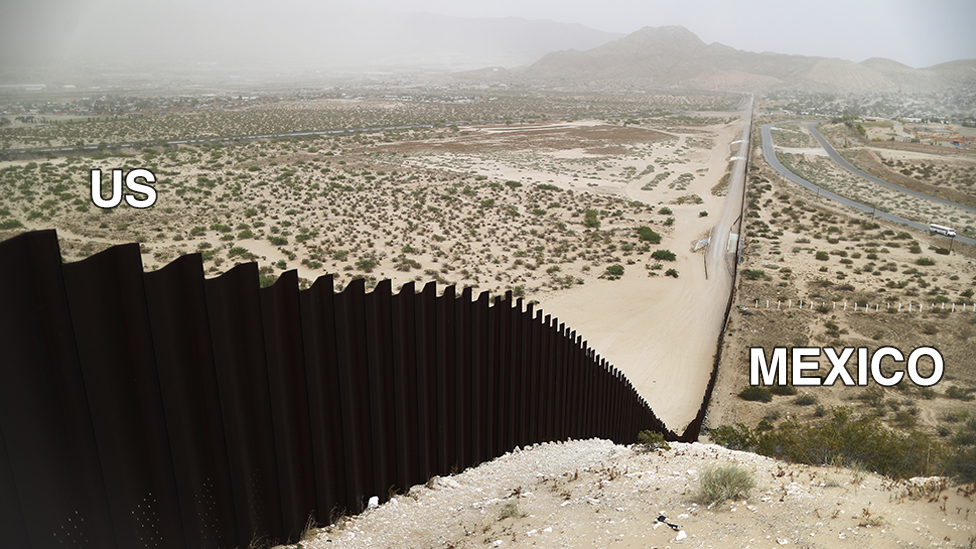Trump's threat of Mexico trade war sends markets lower
- Published

US President Donald Trump's threat to open a trade war with Mexico sent Wall Street sliding, with shares in carmakers among the worst hit.
Markets in Europe were already spooked by news the US would hit Mexico with tariffs in an anti-immigration measure.
The main US share markets closed between 1.3% and 1.5% lower. General Motors, which like many carmakers has operations in Mexico, fell 4.3%.
News of the Mexico tariff move comes amid a US trade war with China.
Mr Trump announced in a tweet that tariffs on all goods coming from Mexico would be introduced until the country curbs illegal immigration into the US.
From 10 June, a 5% tariff would be imposed and would slowly rise to 25% "until the illegal immigration problem is remedied", he said.
The tweet was followed up with a White House statement, external giving more details.
Jesús Seade, Mexico's top diplomat for North America, said the proposed tariffs would be "disastrous", while analysts and investors have speculated that the measure could be the trigger that pushes the global economy into recession.
Commerzbank strategist Ulrich Leuchtmann said: "The US trade policy has taken a qualitatively different turn. Using tariffs as a tool for non-economic goals is something which brings a new quality to proceedings."
Shares in carmakers and supply chain companies suffered the worst. Ford fell 3.4% and Fiat Chrysler 5%.
Mexico is the single biggest source of parts and engines for the US vehicle sector, importing some $128bn worth of products.
A research note from Deutsche Bank said the tariff measure "could cripple the industry and cause major uncertainty".
The total value of US imports from Mexico is about $350bn.
In Europe, car shares were also down, with Renault shedding 4.5%, Volkswagen 2.6% lower, and BMW 1.6% off.

The Business Roundtable, a US body made of chief executives of major US corporations, urged Mr Trump to reconsider.
"Imposing unilateral tariffs on Mexican imports would be a grave error," the group said in a statement, external, warning that this "would create significant economic disruption and tax US workers, farmers, consumers and businesses".
It also warned that the move jeopardised a new US-Mexico-Canada trade deal to replace Nafta.
The US Chamber of Commerce, which represents three million businesses in the US, also condemned the proposed tariffs.
"These tariffs will be paid by American families and businesses without doing a thing to solve the very real problems at the border," said Neil Bradley, the chief policy officer.
'Come back home'
Analysts said that in the highly competitive car and consumer goods sectors, companies were unlikely to be able to pass on extra costs to consumers.
"Margins are so thin in the US market right now that there's no way that any automaker is not going to pass on these tariffs to their customers," said Janet Lewis, an analyst at Macquarie Securities.
"The unknown factor is the impact on suppliers, as components can move back and forth between Mexico, the United States and Canada up to 20 times before they make their way into assembled cars," she said.
But Mr Trump said the tariffs raised would help restore the US car industry, and he urged companies to "come back home to the USA".
Any retaliation by Mexico could put further pressure on American farmers already suffering from the US trade war with China, as well as flooding and wet weather.
Last week, the White House announced a $16bn aid package for farmers, following $12bn in assistance in 2018, to help compensate for Beijing's retaliation.
Dave Salmonsen, a trade policy specialist for the American Farm Bureau Federation, said farmers and consumers would both suffer.
"Fresh food crosses the border everyday, so the consequences on fresh fruits and vegetables would be fairly immediate," he told the AFP news agency, adding that a lot of beer and tequila was also imported.
- Published31 May 2019

- Published31 October 2020
